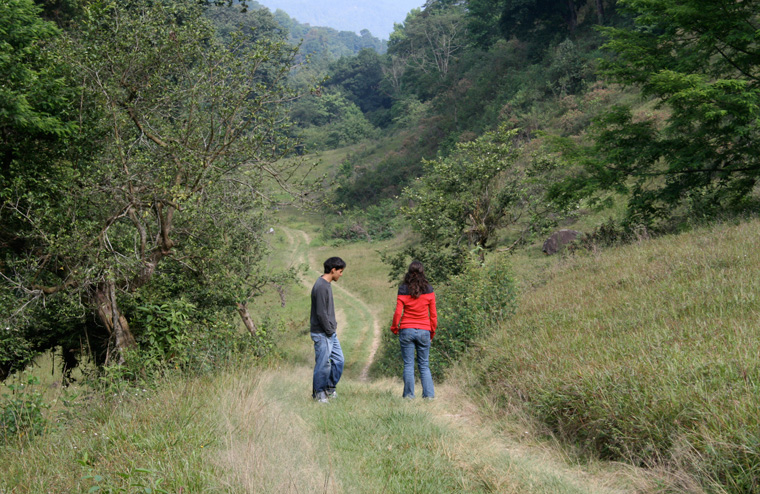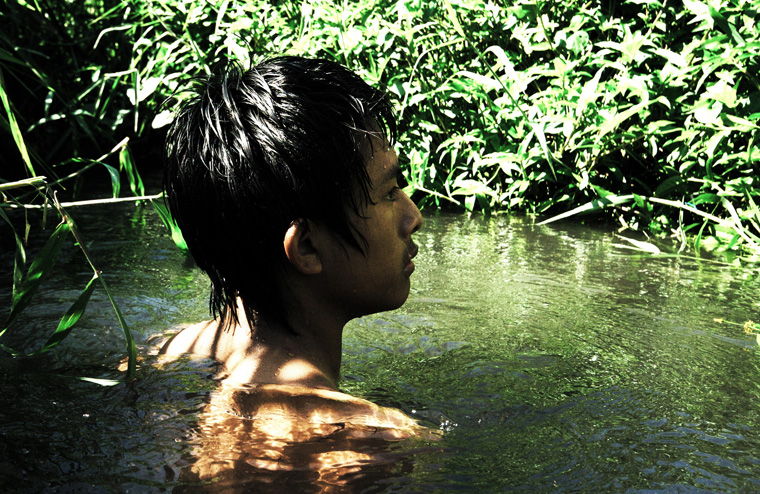Nicolás Pereda retrospective
“Cinema is about believing. On some level you have to believe what is happening in front of you… I find it strange that there is still this division between fiction and documentary. Both are interpretations of truth. When you grab a few tools from documentary and introduce them into fiction, then fiction can become more ‘real’ in viewers minds. I like when fiction and documentary become hybrid, when all the conventions of documentary filmmaking fall apart. Right now documentary has a strong hold on truth, which is ridiculous.”
Perpetuum mobile, Latin for “perpetual motion,” refers to both the unattainable ideal of a self-motive motion of bodies that continues as an unspooling of inconsequential events without external motivation or compulsion, and to a form of composition in which sections and themes are repeated, often with varied modulations and progressions. Perpetuum mobile is also the title of Nicolás Pereda’s third feature film, and the phrase, in both senses, could as well be applied to describe his body of work as a whole. First, because Pereda wholeheartedly rejects the conventional narrative logic that represents the actions of men according to the laws of probability or necessity, and instead seems to focus his attention on what has traditionally been asserted as its opposite: the observation of the mundane world of everyday lives. A world of lackluster prosaicness in which nothing much happens, taking place in an empty, stationary time in which gestures have no continuation or effect and exchanges are either unproductive or rendered trivial by a consciousness of their futility. Secondly, because each of Pereda’s films tends to resonate with the others through the use of repeated themes and the same actors, playing characters who often have the same names, placed in an ever-shifting configuration of relationships to one another and their social environment, which is predominantly set in Pereda’s country of birth, Mexico. This escalating set of variations and permutations reveals itself as one grand, unfolding exploration of cinema and its possibilities and limitations of representation and narration. Pereda’s interest in class divisions, social structures and family relations in Mexican society seems to have fueled his determination to cross boundaries and blur categories, which has resulted in a constant drift between the documentary and the fictional, shifting between interviews and enactments, between actors portraying fictional characters and performers playing themselves. Each film, relying on bare dialogues and long takes, probes anew the borders of fiction as an arrangement of actions linked by verisimilitude and necessity and characters defined by consistency and credibility. As if the filmmaker, in creating a multiplicity of indirections, indeterminations and irresolutions, seeks to stretch fiction beyond the limits of its logic: at which point will the fictional pact between cinema and its spectators shatter beyond rebound? How far can one go in blurring the lines between artifice and reality, in defying the dramatic codes of transformation and resolution, without annulling the cinematic game of identification and distantiation altogether? The greatest merit of Nicolás Pereda might be that he tackles this challenge to the heart of cinema to its fullest extent, while managing to deepen its very mystery.
Een samenwerking van Cinematek, Courtisane, Ambassade van Mexico in België, VDFC, de Universiteit Antwerpen en de Nederlandse Filmacademie Amsterdam School of the arts, met de steun van het Instituto Cervantes van Brussel.

